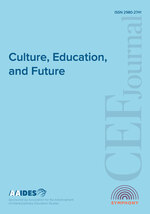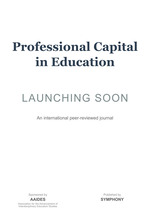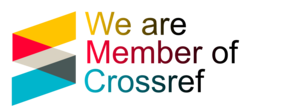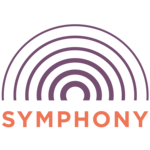Continuous curriculum updating: An alternative approach to periodical reformulation in university
DOI:
https://doi.org/10.70116/3065457241Keywords:
University curriculum, continuous updating, curriculum professors’ practicesAbstract
Research on curriculum continuous updating is reported (CCU); the objective was to test a methodology and its technological database device. The hypothesis considers that CCU allows the professor’s creativity and brings closer the prescribed curriculum with the curriculum-in-use. A CCU methodology and its database (BDW 2.0) were designed. They were tested with 22 professors from three universities (2 Mexican and 1 Chilean), and they produced 85 records. The prescribed curriculum is a power and exclusion dispositive that provokes an anti-democratic education and diminishes the professors’ pedagogical freedom. The results show the types of modifications used in daily classroom work. These modifications are not usually recorded, and the valuable experience of professors is lost. The proposed methodology allows the systematic recording of this as it provides an informative and historical archive for the CCU. The conclusions account for the relevance of teachers’ curriculum practices in the curriculum in use and imply bringing teachers’ voices into the prescribed curriculum. That is, the currere occupies the hegemonic place instead of the mandated curriculum.
Downloads
References
Anderson, E., Smith, R., & Hammick, M. (2015). Evaluating an Interprofessional Education Curriculum: A theory-informed approach. Medical Teacher, 38(4), 385–394. DOI: https://doi.org/10.3109/0142159X.2015.1047756
Angulo-Villanueva, R. (2017). Discursos curriculares en la educación superior en México. Investigación Cualitativa, 2(2), 52-67.
Angulo-Villanueva, R., Pérez, A., López, A., & Grijalva, A. (2016). Tendencias en los criterios de selección de contenidos en maestros de matemática educativa. Una aproximación a las ECCD. En Mariscal E. (Ed.) Acta Latinoamericana de matemática educativa (29), (pp. 1183-1189). Mexico: Comité Latinoamericano de Matemática Educativa.
Autio, T. (2017). Holding tight against the tide. The Problem of Instrumentalism. In Aswell-Doll, M. (Ed.), The reconceptualization of curriculum studies. A Festschrift in honor of William F. Pinar (pp. 1-7). Routledge.
Ball, S., & Olmedo, A. (2013). Care of the self, resistance and subjectivity under neoliberal governmentalities. Critical Studies in Education, 54(1), 85-96. DOI: https://doi.org/10.1080/17508487.2013.740678
Biggs, J. & Collis, K. (1982). Evaluating the quality of learning: The SOLO taxonomy. Academic Press.
Coll, C. (1990). Psicología y currículum, Una aproximación psicopedagógica a la elaboración del curriculum escolar. Paidós.
De Alba, A. (1991). Curriculum: crisis, Mito y perspectivas. Miño y Dávila editores.
De Alba, A. (1993). El currículum universitario ante los retos del siglo XXI: la paradoja entre posmodernismo, ausencia de utopía y determinación curricular, en A. de Alba (Ed.). El currículum universitario de cara al nuevo milenio (pp. 29-45). Centro de Estudios sobre la Universidad-Universidad Nacional Autónoma de México.
De Alba, A. (2007). Curriculum-Sociedad. El Peso de la Incertidumbre, la Fuerza de la Imaginación. Instituto de Investigaciones sobre la Universidad y la Educación- Universidad Nacional Autónoma de México.
De Alba, A. (2015). Cultura y contornos sociales. Transversalidad en el currículum universitario, en A. de Alba y A. Casimiro (Eds.). Diálogos curriculares entre México y Brasil (pp. 195-212). Instituto de Investigaciones sobre la Universidad y la Educación- Universidad Nacional Autónoma de México.
Fitz, J. A., & Nikolaidis, A. C. (2020). A democratic critique of scripted curriculum. Journal of Curriculum Studies, 52(2), 195-213. DOI: https://doi.org/10.1080/00220272.2019.1661524
Foucault, M. (1975/2007). Vigiar e punir: Nascimento da prisão [Discipline and punish: The birth]. Petrópolis, Vozes.
Fung, D. (2017). A connected Curriculum for higher education. University College London. DOI: https://doi.org/10.14324/111.9781911576358
Gatto, J. (2005). Dumbing us down: The hidden curriculum of compulsory schooling. New Society Publishers.
Halpern, C. (2018). The gears of the hidden curriculum revisited. Journal of Curriculum Theorizing, 33(1), 40–44.
Hua, S. (2017). William F. Pinar´s Contributions to the world curriculum field. In Aswell-Doll, M. (Ed.). The reconceptualization of curriculum studies. A Festschrift in honor of William F. Pinar (pp. 187-193). Routledge.
Jobst, S. & Are, T. (2015). Structures of identification in Curriculum – European examples. International dialogues on education: Past and present. IDE Online Journal, 2(2), 11-122. DOI: https://doi.org/10.53308/ide.v2i2.192
Krise, K. (2016). Preparing the Standardized Teacher: The Effects of Accountability on Teacher Education. Journal of Curriculum Theorizing, 31(2), 24–32.
Levinson, M. (2011). Democracy, accountability, and education. Theory and Research in Education, 9(2), 125–144. DOI: https://doi.org/10.1177/1477878511409622
Lijnse, P. (1995). Developmental research. As a way to an empirically based Didactical Structure of Science. Science education 79(2), 189–199. DOI: https://doi.org/10.1002/sce.3730790205
Parkison, P. (2014). Dissidence in teacher education: Challenging the neo-liberal paradigm. Scholar- Practitioner Quarterly, 7(2), 189–206.
Parkison, P. (2015). Catharsis in education: Rationalizing and reconciling. Curriculum and Teaching Dialogue, 17(2), 121–135.
Parkison, P. (2019). The incompleteness of standards and the potential for deliberative discourse. Journal of Curriculum Theorizing, 34(2), 47–57.
Pinar, W. (2012). What is curriculum theory?. Routledge. DOI: https://doi.org/10.4324/9780203836033
Reeves, S., & Hean, S. (2013). Why we need theory to help us better understand the nature of interprofessional education, practice and care. Journal of Interprofessional Care, 27(1), 1-3. DOI: https://doi.org/10.3109/13561820.2013.751293
Reeves, S., Goldman, J., Gilbert, J., Tepper, J., Silver, I., Suter, E., & Zwarenstein, M. (2011). A scoping review to improve conceptual clarity of interprofessional interventions. Journal of Interprofessional Care, 25(3), 167-174. DOI: https://doi.org/10.3109/13561820.2010.529960
Säfström, C. (2018). Liveable life, educational theory and the imperative of constant change. European Educational Research Journal, 17(5), 621-630 DOI: https://doi.org/10.1177/1474904118784480
Sánchez-Puentes, R. (2010). Enseñar a investigar. Una didáctica nueva de la Investigación Científica en Ciencias Sociales y Humanas. Centro de Estudios sobre la Universidad, Universidad Nacional Autónoma de México, Plaza y Valdés.
Seizt, P. (2017). Curriculum Alignment Among the Intended, Enacted and Assessed Curricula for Grade 9 Mathematics. Journal of the Canadian Association for Curriculum Studies, 15(1), 72–94. DOI: https://doi.org/10.25071/1916-4467.40286
Timberlake, M., Burns, A., & Barrett, B. (2017). The allure of simplicity: Scripted curricula and equity. Teaching and Teacher Education, 67(2017), 46-52. DOI: https://doi.org/10.1016/j.tate.2017.05.017
Downloads
Published
How to Cite
Issue
Section
License
Copyright (c) 2024 Symphony

This work is licensed under a Creative Commons Attribution 4.0 International License.










